Like every other genre or trend in children's picture books, toilet humour has it's place and often, quite a commercially successful one. Recently, three author-related experiences have resonated with me: * I took my 'Poo Book' on the road to an author visit at an elementary school. My 1-minute introductory spiel to all the children (ages 5 - 12), finished by squeezing a Poo Emoji soft toy that makes a fart sound. The room erupted into laughter. Adult eyes rolled and kids guffawed. Mission accomplished! * I attended a brilliant Kids & YA Festival at Writing NSW and the writing humour panel for children was the most entertaining I have ever seen. Four leading Australian humour writers for kids were asked about using fart jokes and all admitted they had gone there, even if sparingly. * A children's book Editor at a big publishing house in Oz, shared on the festival panel, that at one time, all she seemed to be publishing were poo and fart books. Not as highbrow as she would have liked, but she knew they would sell, and sales returns are a crucial consideration for the international publishing houses when acquiring manuscripts. So, what exactly am I suggesting? Certainly not that all toilet humour is created equal or even necessary but there are some notable examples of children's books out there that excel in humour based on the universal taboo. Here are some of my favourites... Old MacDonald Heard a Parp (or Fart, depending on what market you are reading in), by Sweden's eighth funniest comedian, Olaf Falafel. Believe it or not, there are quite a few ways to create an authentic farting sound by moving your lips in diverse ways. This is a fantastic read / sing-along book for bedtime, subverting the Old MacDonald tale with new and inventive sounds for passing wind. Throw in a random unicorn and a farting Farmer's wife and you have a very clever and fun picture book. No wonder it has spawned others in a series. The Story of the Little Mole Who Went in Search of Whodunit by Werner Holzwarth & Wolf Erlbruch. This one also goes by different names in different regions (like most books that deal with scatological subjects). And though it's revenge narrative is often questioned as morally dubious, it is still read and enjoyed all over the world, for its universal ability to poke fun of the 'poo taboo' and employ the visuals of a poo, landed on an animal's head. This was first published in 1993 but fast forward 25 years and recognise the Poo Emoji anyone? I could just see that smartphone character sitting atop the poor mole... Unlike the fictionally titled Olaf above, one of Australia's genuinely greatest comedians Ahn Do, is also a prolific author of children's books - commercially successful, with authorial talent to boot. What Do They Do with All the Poo from All the Animals at The Zoo (Illustrated by Laura Wood), is a favourite with Australian elementary school book clubs. The lyrical text has been transformed into a song, which accompanies the book on CD, and it is utterly fun and extremely catchy. I really love Do's rhyme and comic metaphors for poo. Looking at its success, and place in book club catalogues, I would hazard a guess that this has been deemed a 'socially acceptable poo book'; one that adults and children can enjoy, without the stigma attached. Have I convinced you? Whatever your thoughts on toilet humour in picture books, I hope I've made a good case for the genre. It may be just a 'flavour of the month' in the commercial world of publishing, but does it really ever go out of style... completely? With so much to weigh on young minds these days, is a little light humour, focussed on bodily functions, really the worst thing? I suggest we let our kids be the judge. Brydie Wright Bio
Graduate, Craft & Business of Children’s Picture Book Writing Course Chief Editor, Sydney Mums Group and Reviewer, WeekendNotes Author of Daddy and the World's Longest Poo, IAN Awards 2017 Finalist, & Magic Beans from the Creative Kids Tales Story Collection Website - Facebook - Twitter - Instagram - Goodreads by: Sarah Momo Romero The summer has always been my favorite season. Not only because my birthday falls right before 4th of July, with fireworks, barbecues and warm evenings at the beach, but for all the adventures just waiting to be had outdoors. I grew up with a small backyard, but it it was filled with endless adventures of treasure hunts and games of exploring into the evening. This month, I found books with tall tales of a secret fort, a magnificent, traveling pigeon, a lush island brimming with animals galore, and even worlds to explore within each city window. All of these picture books, with their dazzling illustrations will inspire readers of all ages to seek adventures wherever they may be.
Denos is an incredibly talented author illustrator as well (one of my favorites, I featured her book Sketch in one of my earlier posts: http://www.childrensbookacademy.com/the-blogateers/an-artists-eye-looking-at-and-learning-from-the-wonderful-book-swatch), but I especially enjoyed learning the illustrator, E.B. Goodale, lives in the city where Windows takes places, Somerville, Massachusetts. This deeper connection to her neighborhood is clear, as she captures the energy, warmth and details of her beloved city With the warm weather beckoning us to enjoy the long summer days, what adventures, big or small have you gone on recently? I’d love to hear about it!  Sarah Momo Romero is a Japanese Peruvian American artist, a graphic designer by day and children's book author and illustrator by night. She’s loved drawing and painting since she was chiquita and now crafts stories of adventure and wondrous creatures. Sarah is an active SCBWI member who draws inspiration from her life in sunny Los Angeles with her husband/creative partner and dog/infamous escape artist, Peanut. Look out for her first picture book coming out in Fall 2018! You can find more of Sarah's musings and drawings here:
www.sarahmomoromero.com Facebook: thepeanutprojectla + Instagram: @sarahmomoromero + Twitter: @sarahmomoromero by Bryan Patrick Avery There are many ways to perform a magic trick. The cups and balls, considered to be magic’s oldest trick, is performed by nearly every magician. Houdini is known for saying the he considered no man to be a magician if he couldn’t adequately perform some version of this classic trick. What’s so interesting about the cups and balls, and perhaps one of the reasons it has stood the test of time, as that every magician performs it differently. Some use heavy metal cups, some use ordinary coffee mugs (see Lance Burton). The trick is traditionally performed with three cups, but some of magic’s most notable names (like David Williamson) use only two. The point is, the variety of methods and tools used to perform the affect make it an entertaining experience for the spectator. The same is true when it comes to non-fiction books for kids. This month, let’s take a look at three picture book biographies which all do the same thing (tell the story of a notable figure in history) but in very different ways. Martin’s Big Words, written by Doreen Rapaport and illustrated by Brian Collier, is a multi-award winning biography of Martin Luther King, Jr. His story is told by mixing scenes from his life with the powerful words from his speeches and writing. Combining that with Brian Collier’s stunning artwork, Martin’s Big Words becomes a captivating story of one of the twentieth century’s most important figures. Sometimes, of course, fewer words can be just as powerful. This is the case in Viva Frida, written and illustrated by Yuyi Morales with photographs by Tom O’Meara. With just one or two words per spread, in both English and Spanish, and a stunning mix of paintings and photography, Morales takes us on a journey through Frida’s search for inspiration. We see Frida at work, alongside her husband, and with the animals she loved so dearly, as she embraces her search. While many biographies tell us about a person, Morales’ work shows us who Frida was. A masterful piece of art in itself, Viva Frida, a Caldecott Honor book, is an extraordinary biography which will thrill readers of all ages. As a child, I was fascinated by Jacques Cousteau. When I first heard about Manfish, written by Jennifer Berne and illustrated by Eric Puybaret, I couldn’t wait to read it. I was not disappointed. Berne’s book tells Cousteau’s story brilliantly, capturing the sense of wonder and discovery that drove Cousteau. There is an almost childlike perspective, which we seem to lose as adults, that Berne uses, which makes Cousteau’s work even more accessible to kids. Puybaret's beautiful illustrations, paired with the almost lyrical text, make Manfish a joy to experience. As a bonus, Berne has included some suggestions for young readers who want to learn more about Jacques Cousteau. It’s a terrific way to extend the experience of the book into readers' lives.
Well, that’s all for this month. I’m in the throes of revising two picture book biographies, so I’ve got my work cut out for me. Have a very magical month! by Melissa Stoller Kids love humor. And parents enjoy reading books aloud and hearing their children laugh in response. Nothing brightens a moment more than a smile. Including humor in a picture book is one way to grasp the attention of the youngest readers as well as the adults reading to them. Humor in picture books can be portrayed as over-the-top wacky, outrageous, dry, ironic, or subtle, to name a few possibilites. Humor can touch the characters, the setting, or both. Picture book creators use clever wordplay, impossible situations, misunderstandings, running jokes, mashed up topics, and more when adding layers of humor to their stories. Sometimes the illustrations do the heavy lifting, and other times the words create the humorous framework. Often, the funny interplay between text and art keeps the situations moving forward. Humor can often be used successfully when writing about difficult topics. And a funny situation can help bridge the gap between what children know and what they might be hesitant or fearful about. Most important, humor in picture books creates connections between children and the stories they read. Here are five recent picture book examples that brilliantly feature humor: 1) “Russell’s granddaddy was the Texas Tickler. He’d been perfecting his famous Texas Ticklehold for the better part of a century. The only wrestler who could beat him was Russell’s grammy, Dorothy the Dropper, with her Kansas Crusher.” Russell Wrestles the Relatives, by Cindy Chambers Johnson, illustrated by Daniel Duncan. The witty wrestling names create smiles, and the vivid illustrations perfectly complement the clever text. 2) Homer the dog is speaking about his arrival at Wolf Camp: “I was greeted by Fang and Grrr, our counselors.” Word bubble: “They seem nice.” Wolf Camp, by Andrea Zuill. Readers will chuckle throughout this book. Also check out the hilarious illustration of Homer back from Wolf Camp, sleeping with an electric blanket. 3) The humor starts on the title page of this book, with an illustration of a dinosaur and the word bubble: “Hey Kids! You will never be eaten by a T. rex. They are extinct, I promise!” We Don’t Eat Our Classmates, by Ryan T. Higgins. The laughs continue from there. 4) “Hey!” said the orca. “You’re not a penguin!” “How did you know?!” cried Harriet. “Penguins don’t wear bow ties,” he replied. Harriet Gets Carried Away, by Jessie Sima. The absurdity of the situation creates the perfect canvas for humor in this loveable and relatable tale. 5) “Nate pretended he was a frightful, bite-ful, great white shark at home . . . chomp! chomp! at the park . . . and at school. chomp!” (Speech bubble: Watch out! It’s Shark Nate-O!). Shark Nate-O, by Tara Luebbe and Becky Cattie, Illustrated by Daniel Duncan. Clever wordplay and a unique premise - a boy is obsessed with sharks but can’t even swim - amplify the humor. Just try not to laugh when you’re reading these funny stories! BIO: Melissa Stoller is the author of the chapter book series The Enchanted Snow Globe Collection - Book One: Return to Coney Island and Book Two: The Liberty Bell Train Ride (Clear Fork Publishing, 2017 and Fall 2018); and the picture books Scarlet’s Magic Paintbrush and Ready, Set, GOrilla! (Clear Fork, Fall 2018). She is also the co-author of The Parent-Child Book Club: Connecting With Your Kids Through Reading (HorizonLine Publishing, 2009). Melissa is an Assistant for the Children’s Book Academy, a Regional Ambassador for The Chapter Book Challenge, an Admin for The Debut Picture Book Study Group, and a volunteer with the Society of Children’s Book Writers and Illustrators/MetroNY. Melissa has worked as a lawyer, legal writing instructor, freelance writer and editor, and early childhood educator. Melissa lives in New York City with her husband, three daughters, and one puppy. When not writing or reading, she can be found exploring NYC with family and friends, traveling, and adding treasures to her collections. CONNECT: www.MelissaStoller.com http://www.facebook.com/MelissaStoller http://www.twitter.com/melissastoller http://www.instagram.com/Melissa_Stoller http://www.pinterest.com/melissastoller |
We are so excited to be mixing things up at CBA, beginning with some delicious additions to the Blogfish. Meet our awesome bloggers!!
Here's our lineup: 1st Mondays begin with former school psychologist Dr. Debra Collins who will be writing about Social emotional Learning in kidlit and behind the scenes as well as Jewish children's books. 2nd Mondays will feature super smart Melissa Stoller whose career is taking off with several new books. 3rd Mondays will feature our new blogger coming soon. 4th Mondays features new blogger, the fabulous Brentom Jackson, who has a beautiful approach to blogging. And 5th Mondays we'll be taking a break Archives
July 2024
|
|
Discover
|
About Us
|
Join Us
Join our Community and receive a fabulous free gift, KidLit tips, newsletters, scholarship info, contests, and more!
Join our KidLit Mentorship |
Social Media
Interact with our FaceBook Group or follow us on:
|
© 2010-2024 All content on this website is copyrighted. Sorry, all courses are non-refundable.
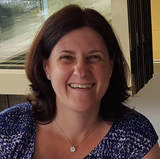
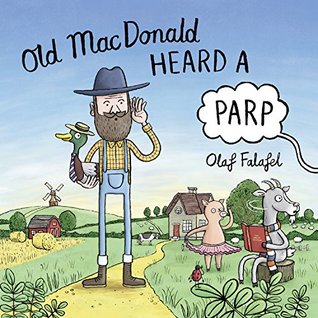
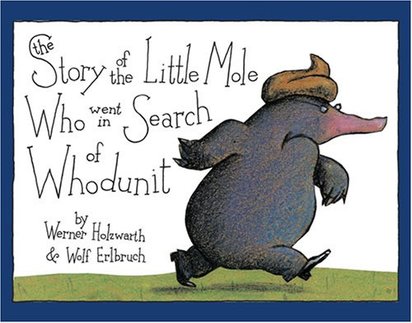
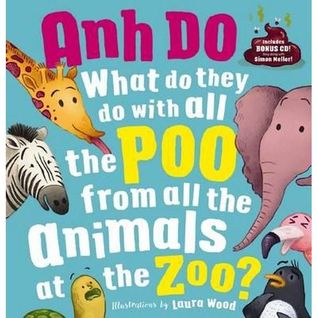
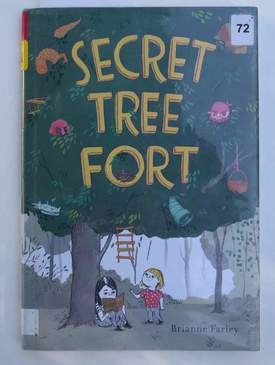
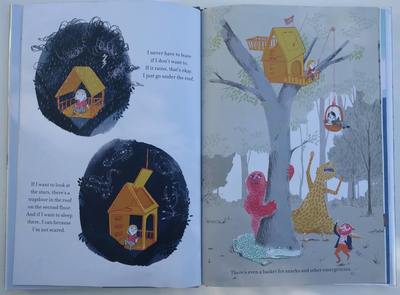
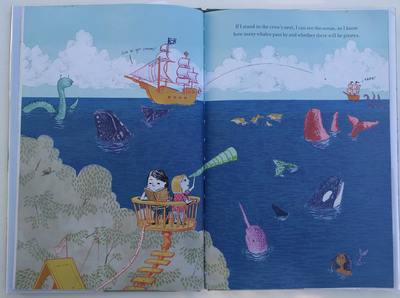
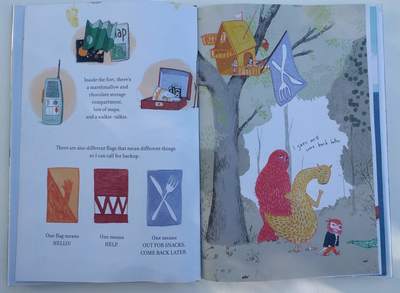
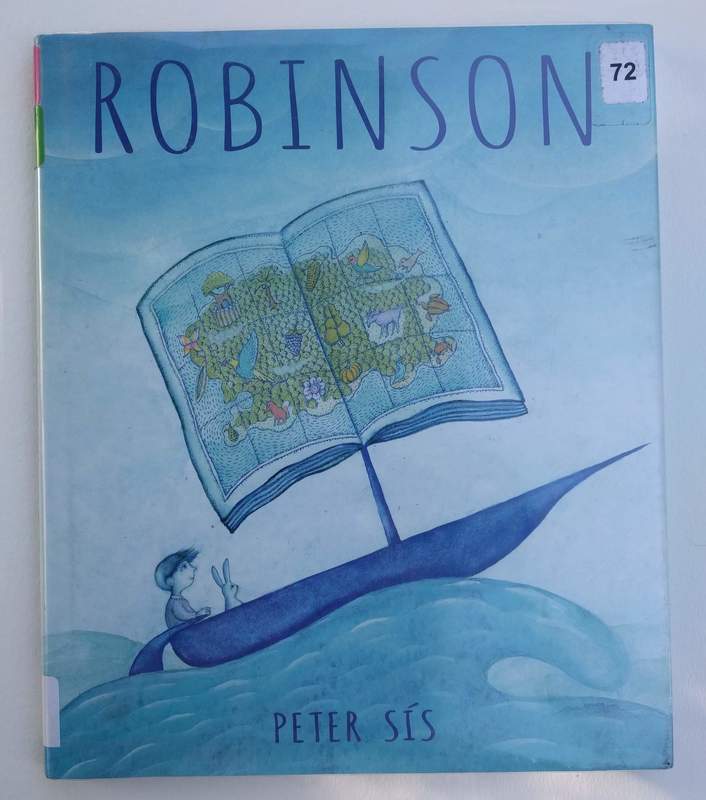
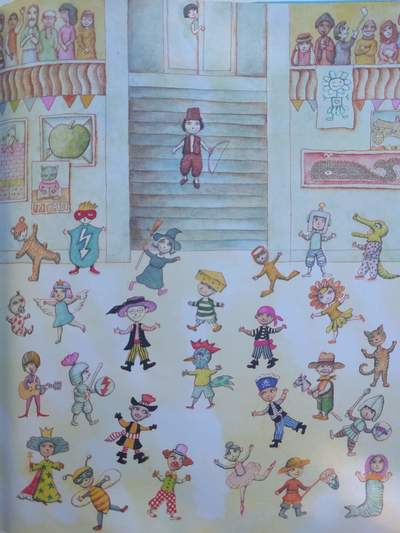
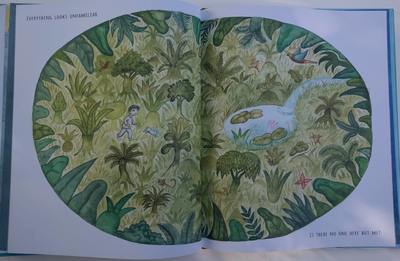
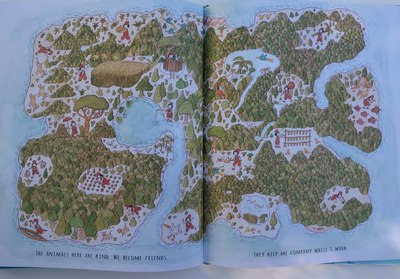
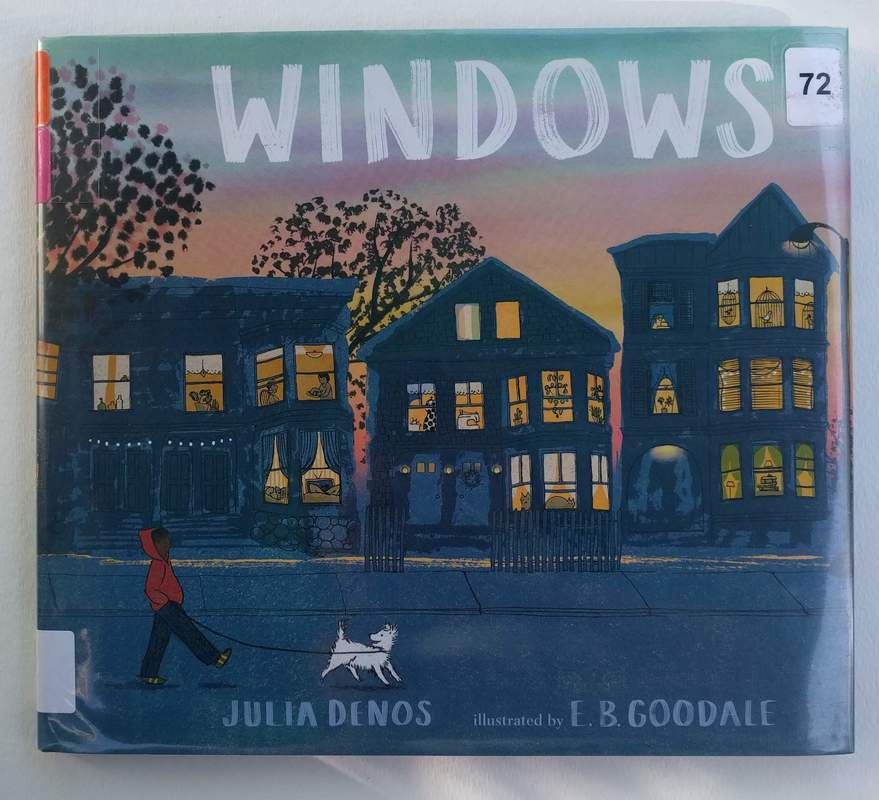
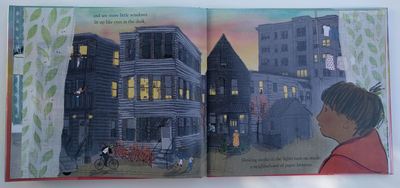
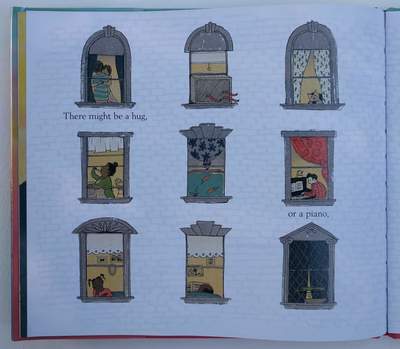
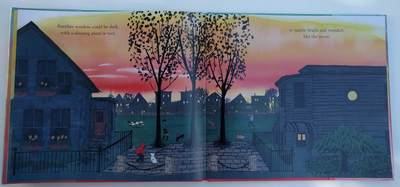
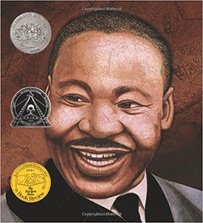
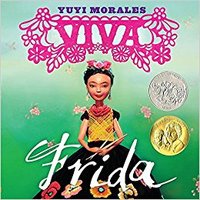
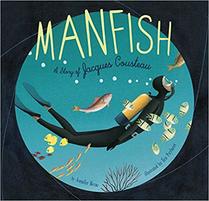
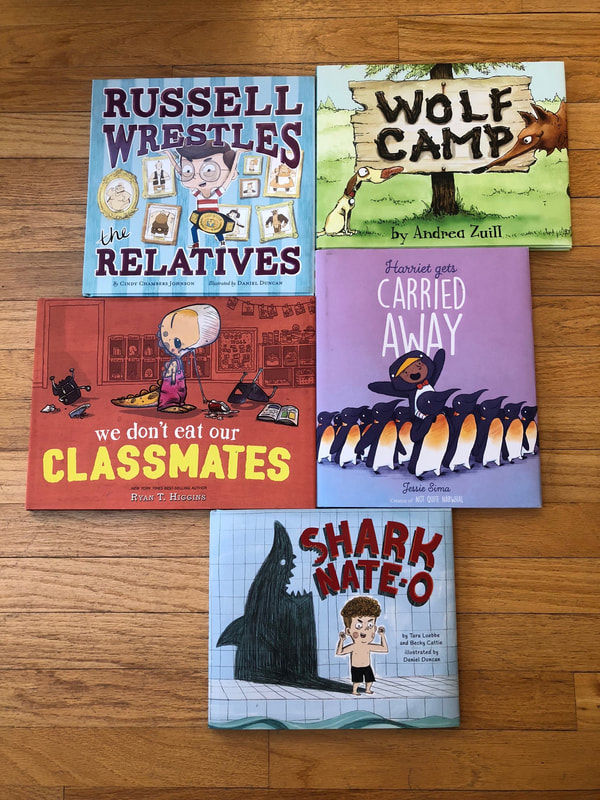
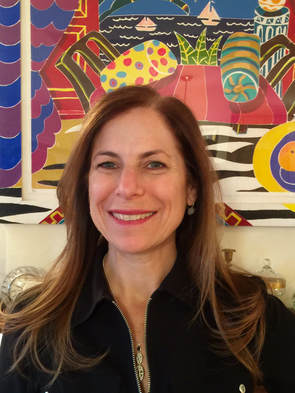
 RSS Feed
RSS Feed
